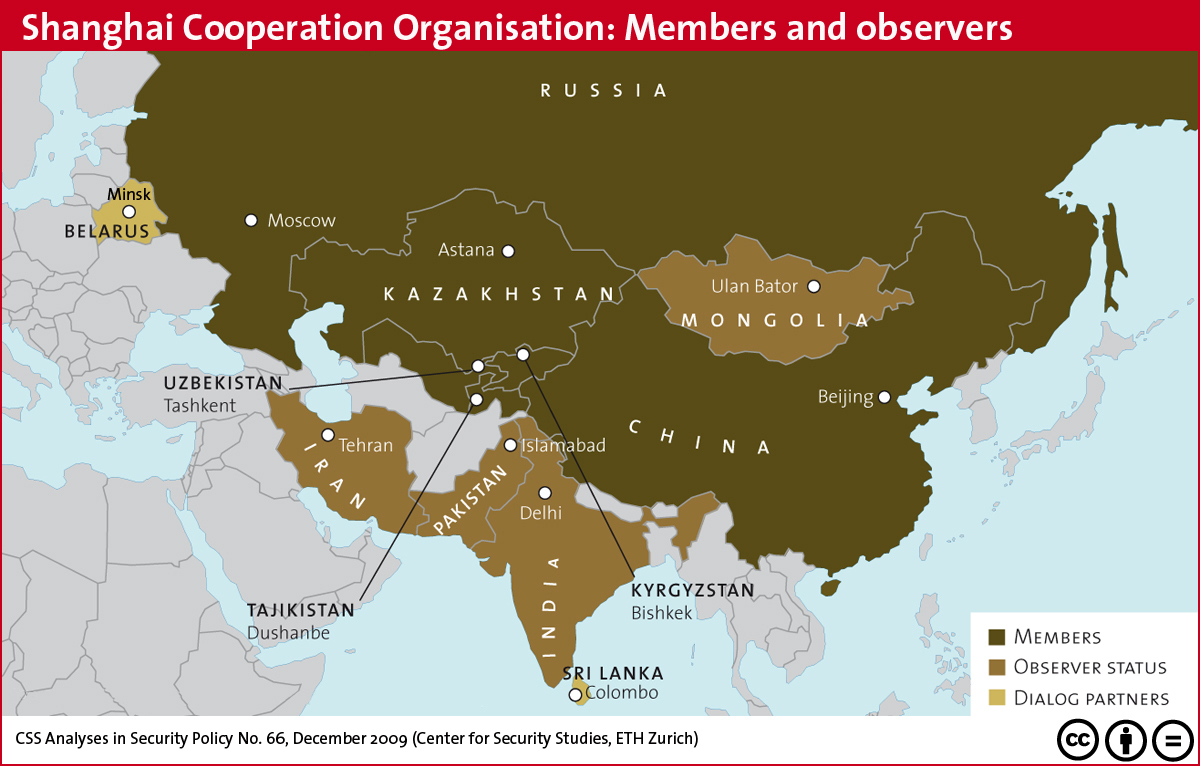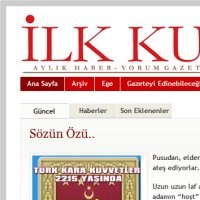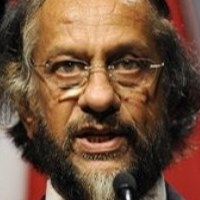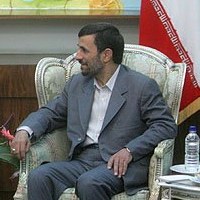![]()
Wed, Jan 30, 2013 | By Halil M. Karaveli
This article was first published in the Turkey Analyst, vol. 6 no. 2 (www.turkeyanalyst.org), a biweekly publication of the Central Asia-Caucasus Institute & Silk Road Studies Program Joint Center. © Central Asia-Caucasus Institute & Silk Road Studies Program Joint Center, 2013.
Recep Tayyip Erdoğan’s talk of joining the Shanghai Cooperation Organization[1] and abandoning the pursuit of EU membership cannot be dismissed as loose talk, but neither does it herald a major strategic pivot. The Turkey of Erdoğan will continue to privilege and nurture its relations with the West, above all with the U.S., Erdoğan’s anti-Western prejudices and sentiments notwithstanding. And Erdoğan’s embrace of a club of autocrats should not obscure the fact that a very significant portion of the population of Turkey still endorses the goal of EU membership, and that holds true not least among the voters of the ruling Justice and Development Party (AKP).
Background
When the AKP was founded more than a decade ago, its founders broke with the Islamist movement to which they had belonged, most notably with the Turkish Islamist tradition of anti-Westernism, instead embracing the goal of Turkish EU membership. That was a crucial departure from old ideological habits, as it helped establish the new party’s centrist, reformist credentials, making it possible for the AKP to appeal to constituencies far beyond the traditional core of Islamic conservative voters. It also bestowed legitimacy on the Islamic conservative rulers of Turkey on the international scene, securing the support of the EU and the United States for them as they set about to roll back the power of the military; the reforms that ended the regime of military tutelage were undertaken and legitimated as part of the effort to bring Turkey closer to the goal of EU membership.
Indeed, the strong public support for EU membership and the identification of the AKP with the EU dream effectively undermined the political position of the military; the generals became politically isolated from the mainstream of Turkish society when they confronted a ruling party which seemed to be working hard to realize a goal — EU membership — that an overwhelming majority supported and cared very much about.
Today, of course, the military is no longer in any position whatsoever to threaten the government of Prime Minister Recep Tayyip Erdoğan. Erdoğan has done what no other civilian, elected leader in Turkey had ever done, or had even attempted to do before him: he has broken the power of the praetorian guard of the republic, relegating the generals, who once thought of themselves as the rightful owners of the state, to the role of the loyal servants of the elected government. That means that the main political rationale behind Erdoğan’s and the AKP’s embrace of the goal of EU membership a decade ago has disappeared.
During a television interview on January 25, Erdoğan made the suggestion that Turkey join the Shanghai Cooperation Organization (SCO) instead of keep knocking on an EU door that anyway seems to remain shut, a suggestion that has startled Turkish commentators and foreign policy experts. Russia, China, Kazakhstan, Kyrgyzstan, Tajikistan and Uzbekistan are SCO members. Afghanistan, India, Iran, Mongolia and Pakistan are observer; and Turkey is a “dialogue partner” of the SCO, together with Belarus and Sri Lanka. Erdoğan recounted a conversation he had had with Russian president Vladimir Putin, during which he — then apparently half-jokingly — had appealed to him to invite Turkey to become a member of the SCO. Asked if the SCO is an alternative to the EU, Erdoğan replied that the former is “better and more powerful”, and that Turkey shares “common values” with its members, all of whom are autocracies; even though Erdoğan did not say so directly, his comments do suggest that he thinks that Turkey does not share common values with the democracies of the EU.
Ironically, Erdoğan’s Eurasianist rhetoric resuscitates a strategic and ideological concept that was espoused by several generals a decade ago; in response to the support that the EU and the U.S. had lent the AKP government, these generals called for a break with the West, and argued that Turkey should instead align itself with Russia, China and Iran; a Eurasian realignment would shore up the state authoritarianism that was being undermined by the EU reforms of the AKP government. Erdoğan’s motives for arguing for what seems to be a similar, geopolitical and ideological reorientation are not immediately apparent.
Implications
Turkish columnists and foreign policy experts are debating whether the prime minister is serious at all about joining the SCO; some suggest that Erdoğan is bluffing, in an attempt to force the hand of the EU to restart the membership process that has long since stalled. Others meanwhile, point out that Erdoğan has been in the habit, for some time, of making unexpected proposals that appeal to conservative voters, without harboring any intent to enact them. During the past year alone, Erdoğan has talked about banning abortion and restoring capital punishment, yet he has not made any subsequent attempt to translate his strongly conservative rhetoric into changes to laws.
The argument that Erdoğan’s main motive is to issue a wake-up call to the EU is not particularly plausible, since the Turkish prime minister himself has not demonstrated any zeal in the pursuit of EU membership for a long time. The explanation that Erdoğan intended audience is the conservative and Turkish nationalist voters is more plausible; Erdoğan himself most surely assumes that his talk of turning Turkey’s back to EU resonates among a broad section of Turkish society. However, that supposition may be more questionable than what is conventionally assumed. A public opinion survey carried out on behalf of the Istanbul-based Center of Economics and Foreign Policy Studies, EDAM, shows that 34 percent of AKP voters hold the view that Turkey should persist in EU membership in the next five years; 21 percent prefer that a new relationship based on mutual interests be formulated; only 12 percent of the AKP voters advocate that the EU membership track be abandoned altogether and that Turkey should create a rival organization to the EU.
The support for that path is strongest, with 17 percent, among the voters of the Nationalist Action Party (MHP). Support for EU membership has dwindled, but is still substantial — indeed remarkably so — given the lack of interest on the part of Ankara and Brussels’ cold-shouldering of Turkey since 2005. The support among the AKP voters is slightly above the overall support — 33 percent — and second only to the overwhelming support — 88 percent — expressed by the voters of the pro-Kurdish Peace and Democracy Party (BDP). If Erdoğan is appealing to a particular political constituency with his Shanghai statement, it would be to the ultra-nationalist conservative MHP voters, rather than to the Islamic conservative AKP voters.
Erdoğan’s Shanghai statement follows on a string of statements in which the Turkish prime minister has given vent to what is no doubt a deeply felt antipathy toward the West. Speaking at the University of Gaziantep in southeastern Turkey on January 19, Erdoğan claimed that “the West does not want Turkey to be powerful.” On his visit to Egypt last November, Erdoğan reminded his Egyptian audience that “you should be aware that the Western powers think of nothing but to tear apart the Muslim world, to destroy it from within.”
Erdoğan is too shrewd a practitioner of realpolitik and attuned to international political realities to sacrifice politically and economically beneficial relationships for the sake of ideology; in the television interview he underlined that it would not be right to break the relationship with EU without first having secured an alternative, and he pointed out that Turkey indeed benefits from the established relationship with the EU.
But it is as if Erdoğan wants to provoke or persuade the Europeans to take the initiative for a divorce, as if he is hoping that the EU will let Turkey off the hook, as these words suggest: “The EU wants to forget us, but it is reluctant, it cannot forget us. Yet if it only could come straight we will be relieved.”
Conclusions
Recep Tayyip Erdoğan’s talk of joining the Shanghai Cooperation Organization and abandoning the pursuit of EU membership cannot be dismissed as loose talk, but neither does it herald a major strategic pivot. The Turkey of Erdoğan will continue to privilege and nurture its relations with the West, above all with the U.S., Erdoğan’s anti-Western prejudices and sentiments notwithstanding. It is to Washington that Erdoğan is eagerly waiting to be invited these days; as has been the case with every Turkish prime minister since the 1950s, an invitation to the White House is what Erdoğan cherishes above anything else. The relationship that he enjoys with Barack Obama helps Erdoğan feel truly important on the world stage, but it is with Vladimir Putin that he shares common values. His Shanghai statement serves to impress that fact.
As he took care to point out, Erdoğan is not going to initiate a divorce from the EU, but he may very well be entertaining the hope that the Europeans will heed his invitation and “relieve” Turkey — or rather him. Because Erdoğan’s embrace of a club of autocrats should not obscure the fact that a very significant portion of the population of Turkey still endorses the goal of EU membership, and that holds true not least among the voters of the AKP.
A decade ago, insufficient attention was paid internationally to the AKP’s instrumental perspective on the EU membership process, while Erdoğan and his party were accorded too much benefit of the doubt; today the risk is the opposite. It is too tempting to conclude that Turkey is a lost case, seemingly doomed to an autocracy bon pour l’Orient, when the towering Erdoğan no longer bothers to hide his aversion to liberal values. Yet while Erdoğan has reverted to his roots, his voters have to a significant degree evolved and internalized the goal of EU membership. They may not remain his voters for ever.
Halil M. Karaveli is Senior Fellow and Editor of the Turkey Analyst at the Central Asia-Caucasus Institute & Silk Road Studies Program Joint Center.
![]()
Note:
[1] The Shanghai Cooperation Organisation or SCO is an intergovernmental mutual-security alliance founded in 2001 in Shanghai by the leaders of China, Russia and four Central Asian states: Kazakhstan, Kyrgyzstan, Tajikistan, and Uzbekistan. The Shanghai Five, the SCO predecessor, was founded in 1996 by the present SCO member states except Uzbekistan. In 2001, Uzbekistan joined the Shanghai Five resulting in renaming the organization. In June 2002, the heads of the SCO member states signed the SCO Charter which expounded on the organisation’s purposes, principles, structures and form of operation, and established it officially from the point of view of international law. The SCO is an observer in the United Nations’ General Assembly and has established regional interaction with the European Union, Association of Southeast Asian Nations (ASEAN), Organization for Security and Co-operation in Europe (OSCE), the Commonwealth of Independent States and the Organisation of Islamic Cooperation. The SCO member states objectives are 1) strengthening mutual trust and neighbourly policies; 2) effective cooperation in politics, trade, economics, science, technology, culture, education, energy, transport, tourism and environmental protection; 3) military cooperation, intelligence sharing, and counterterrorism ensuring peace, security and stability in the region; 4) advancing to a new geo-political and economic order.



 RSS
RSS













Latest Comments
Hello Mike, Thank you for your positive feedback to the article. I felt there wasn’t too much critical analysis of ...
Thanks for this considered and well constructed article. A follow up article on the manner in which the editorial contro...
THE CLUELESSNESS OF CLAIMING THAT OBAMA'S MIDDLE EAST POLICIES WERE A FAILURE CANNOT BE FURTHER FROM THE TRUTH, WHAT THE...
As long as Obama is the president of the usa do not trust the us government......
Thank you for an good read....